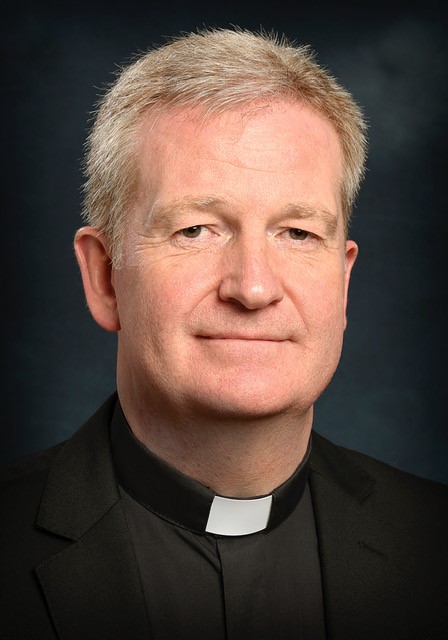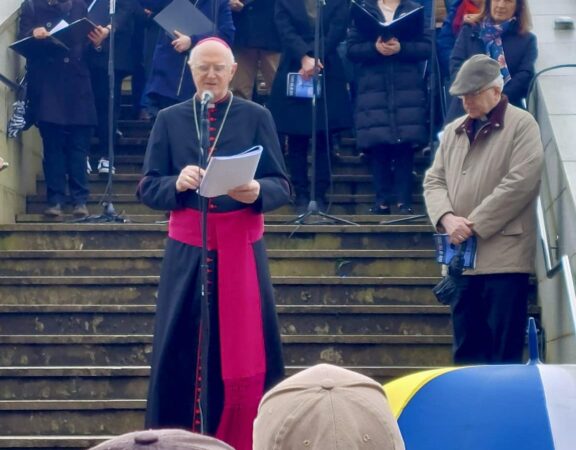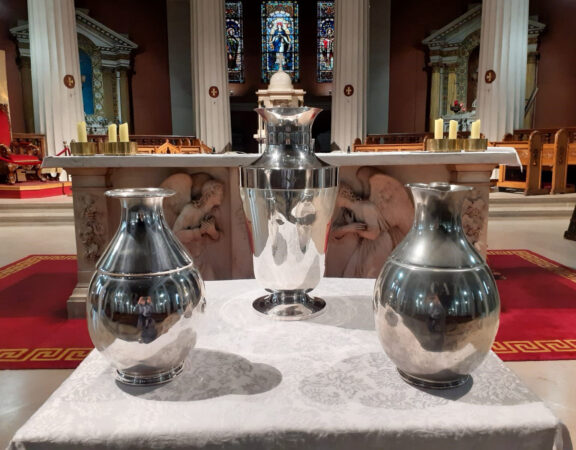NBSCCCI praise for Safeguarding in Dublin
The National Board for Safeguarding Children in the Catholic Church in Ireland has said the Archdiocese of Dublin is to be commended for the “rational, comprehensive and integrated child safeguarding system it has developed”. The NBSCCCI review of safeguarding and child protection practice, published today, praised those working in the area of child safeguarding in the Dublin Diocese saying, “their combined achievements in turning around a shocking and grievous situation is remarkable”.
Welcoming publication of the review, Director of Safeguarding, Mr Andrew Fagan said the Diocese is fully committed to implementing the six recommendations for improvement from the National Board. He added there was never room for complacency and he encouraged anyone affected by abuse, who had not yet come forward, to try and do so and get the help and support they may need. He said everyone on his team knew from past experience that days like today, when there is much public discussion on the issue of abuse, are particularly painful for people who have suffered.
The extensive review by the NBSCCCI brings to eight the number of inspections and investigations into child protection practice by Church and State agencies in the Archdiocese of Dublin over the past number of years. Others include the Murphy Report, a HSE Audit, three Garda inspections, the Apostolic Visitation and an internally commissioned audit.
The Archdiocese met or partially met all criteria by the NBSCCCI Safeguarding practice. The National Board made a number of recommendations for improvement, among them, that the Diocese look at increasing awareness of safe practice where on-line communications and social media are concerned, and also that it look for regular feedback from parents and parishioners as to how safeguarding procedures operate in parishes.
Mr Fagan said that they were especially pleased with the NBSCCCI view of diocesan reporting and recording structures. Referring to the Diocesan policy ‘Procedure for Dealing with Allegations of Child Abuse against Priests of the Diocese’ the Board said it was “an exemplar of its type”, giving “unequivocal commitment to report to and cooperate with the two statutory authorities, An Garda Siochana and the HSE / Child and Family Agency (Tusla)”.
However, Mr Fagan said one of the most important findings was that: “The child safeguarding structures are now sufficiently rooted and robust to survive the movement of personnel from their current positions in the archdiocese. This rational and effective system has inbuilt accountabilities, both internally and to the statutory child protection agencies and the NBSCCCI, which should ensure that any ‘uncommitted or ineffective’ post-holder would be easily identified and strongly challenged.” Mr. Fagan said this observation improved on the position outlined in the Murphy Report in 2011, which referred to child protection structures being heavily dependent on just two people.
There was particular mention in the review of the roles of Priest Support Co-ordinator and Priest Delegate. Both roles are unique to the Dublin Diocese. The Priest Support Co-ordinator monitors and supports priests out of ministry as a result of complaints of abuse. The review team said this role showed the commitment of the Diocese in maximising the level of protection to the community while at the same time recognising a duty of care to priests accused. Regarding the Priest Delegate it said “he, as a brother priest provides a level of support and understanding to the priests of the archdiocese around the whole area of child safeguarding.”
The Diocesan practice of publishing child protection statistics annually was also commended. The information was updated to coincide with publication of the review today.
In the past 12 months almost 6,000 people were Garda vetted through the Archdiocese. This includes bishops, priests, parish and diocesan staff, support staff in schools and agency workers. The total number of people vetted through the Diocesan system now stands at 38,000.
In the past 12 months over 1,000 people participated in safeguarding training or information sessions in parish and group settings.
Since last year another three priests of the Archdiocese have been the subject of allegations of child sexual abuse. This brings to 101 the number of priests of Dublin who have been accused of abuse since 1940. In that time around 1,350 priests have served in the Archdiocese of Dublin. This figure records the number of priests who were the subject of allegations of abuse received by the Archdiocese. This includes allegations of abuse that were confirmed, allegations that were inconclusive and allegations that were unfounded.
12 priests or former priests have been convicted in the criminal courts.
236 civil actions have been taken against 51 priests or former priests of the Diocese. 187 cases have concluded and 49 are on-going.
The costs, to date, to the Archdiocese of settlement of claims regarding child sexual abuse by priests is currently €20.4 million (€14 million in settlements and €6.4 million in legal costs for both sides)
Anyone who may have Child Protection Concerns should contact the Gardai, the HSE or the Child Safeguarding & Protection Office of the Archdiocese on 01-8360314
Comprehensive Information on the service is available on www.csps.dublindiocese.ie
Towards Healing – a support service for survivors of abuse and their families is extending their Helpline opening hours from 11am until 1am today and tomorrow.
Freephone 1800 303 416 or text service, for hearing impaired service users; 085 8022859









